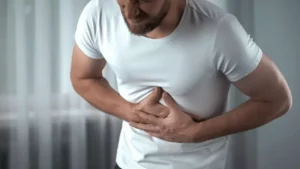
Today, you will gain a deeper understanding of what relapse is, including different stages of relapse, causes and warning signs, relapse prevention strategies, and where you can find help after an alcohol relapse. Some people feel that relapse prevention is about saying no right before they take a drink. In reality, the physical relapse stage is the most difficult to stop, and it’s a final stage rather than a standalone. If you experience a physical relapse, you might need to return to treatment or revisit your relapse prevention plan.
Timeline for Recovery

The Termination stage is the final phase of alcohol recovery, where individuals achieve full independence from alcohol dependence with minimal risk of relapse. This phase signifies that alcohol no longer poses a threat to the individual’s life. Confidence in maintaining long-term sobriety is fully developed, and the need for structured support systems significantly decreases. Similarly, the Substance Abuse and Mental Health Services Administration (SAMHSA) emphasizes that detoxification is a set of interventions aimed at managing acute intoxication and withdrawal, thereby minimizing physical harm. A study “Delirium Tremens” by Abdul Rehman, et al. 2023 found that severe alcohol withdrawal symptoms, such as delirium tremens, have a mortality rate of up to 15% if untreated.
Loss of Control
These networks offer not just understanding and encouragement but also active strategies for maintaining sobriety. By engaging in regular meetings and forming connections with others who understand their journey, individuals can feel less isolated. This can improve resilience Alcoholics Anonymous against relapse triggers since members motivate each other to stick to their recovery plans. Self-care plays a critical role in preventing relapse by ensuring that individuals maintain both their physical and mental well-being. Engaging in regular recovery meetings is crucial as it provides a support network and helps individuals remain focused on their recovery journey. This process includes detoxification, medication-assisted treatment (MAT), behavioral therapy, and peer support, which collectively reduce relapse risk and promote long-term sobriety.
Mindfulness in Addiction Recovery for Lasting Healing
Effective support from family and friends can significantly enhance the chances of successful recovery by ensuring that individuals feel less alone in their journey. Recognizing and managing these triggers effectively can play a crucial role in maintaining long-term recovery. Recognizing these signs early is essential as it indicates a propensity for deviation from the recovery path, often leading to physical relapse. Alcoholics Anonymous (AA) follows a 12-step program that emphasizes spiritual growth, self-reflection, and peer accountability. Participants work through structured steps to achieve and sustain sobriety, often with the guidance of a sponsor who has successfully maintained abstinence.
The Contemplation stage is the second phase of alcohol recovery, where individuals begin to recognize their alcohol dependence and consider making a change. Unlike the Pre-Contemplation stage, there is an acknowledgment of the negative effects of alcohol, but uncertainty and hesitation delay immediate action. Individuals in this stage weigh the pros and cons of quitting, often feeling ambivalent about seeking help. Sustained recovery lowers cardiovascular risks by reducing hypertension, preventing stroke, and improving circulatory efficiency.
What Are Different Levels of Care for Alcohol Addiction Treatment?

Our emotions influence our thoughts and can be a big driver of how our minds and bodies react. Understanding your emotional needs and meeting them (or finding support to help you meet them) is important. The biggest sign of an impending emotional relapse is poor self-care which includes emotional, psychological, and physical care.
Support Groups

Continuing with therapeutic sessions is critical for preserving abstinence post-detoxification while also managing any arising psychological symptoms. To craft a personalized treatment regimen that addresses all dimensions of withdrawal and rehabilitation, conducting a comprehensive assessment of an individual’s physical and psychological well-being is essential. This part will delve into various methods for handling withdrawal symptoms to facilitate a seamless transition through recovery. Even though physical signs of withdrawal tend to wane within a short span of days, the mental ramifications may endure much longer. It’s crucial to acknowledge that recovery is often protracted and necessitates consistent support and therapy.
Is Combining Two Treatments for Alcohol Addiction More Effective?
The strategies that help prevent relapse after alcohol addiction treatment include ongoing therapy, support groups, lifestyle changes, mindfulness practices, and medication-assisted treatment. These approaches reinforce sobriety, address triggers, and provide important what to do after a relapse support in maintaining long-term recovery. Alcohol addiction treatment involves a comprehensive process designed to support individuals in regaining control over their drinking habits and achieving long-term recovery. It includes medical and therapeutic interventions designed to address withdrawal symptoms, modify destructive behaviors, and support long-term recovery. The primary goal is to help individuals regain control, improve health, and prevent relapse. In the United States, approximately 14.5 million adults were diagnosed with AUD in 2022, as reported by Statista.
- Explore proven cognitive therapy techniques to transform your mind and tackle mental health challenges effectively.
- Individuals with a history of alcohol dependence are more likely to resume drinking following stressful life events.
- Understand ‘dependence vs. addiction’, unpack their complexities, and explore recovery strategies.
- The decision between inpatient and outpatient detox can significantly impact your experience and success.
- Take time out for yourself, treat yourself with compassion, and let yourself have fun.
At this stage, working toward avoiding triggers or high-risk situations in which relapse could occur is critical. Therapy may focus on identifying high-risk situations and learning ways to avoid them. It may also involve normalizing occasional thoughts and relapse, and learning methods to let go of them quickly.
Alcohol Addiction Therapy: Definition, Types, Benefits, Alternatives

Calls to numbers marked with (I) symbols will be answered or returned by one of the treatment providers listed in our Terms and Conditions, each of which is a paid advertiser. Include the names of everyone on your medical and support teams and how to contact them.